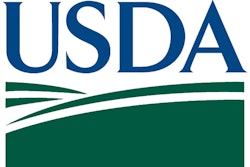
Suddenly, something old is remarkably new again! Plant-based meats and foods have been available for quite some time. Past introductions served the vegan market with soy protein products and included burgers, bacon, hotdogs, etc. For example, Morning Star Farms’ website claims it has been in the plant-based food business for more than 40 years. As a pioneer of vegetarian foods, Morning Star Farms also claims to produce “America’s most eaten plant-based foods.” As a leader in plant-based foods, the company has endured market ups and downs as consumers have judged the acceptability of the soy protein products from a cultural, flavor, texture and value standpoint.
With several new players in the vegan market offering new pea protein-based products, it’s a good time to consider the food safety aspects of these products and review the food safety principles and systems that will keep these foods safe for consumers. Concern for food safety comes to mind due to the recent FDA recall of 10 brands of hummus distributed throughout the United States. The products were recalled after an FDA inspection found Listeria monocytogenes at a manufacturing facility. Hummus is made from cooked, mashed chickpeas (garbanzo beans) or other beans that are the same ingredients for many of the new pea-based products.
The scope of the new plant-based foods industry seems to be increasing every day. Both manufacturers and fast-food restaurant chains are jumping in with products. Even the stock market is excited for these companies and the possibilities of tapping into the possible $48.8 billion ground beef market, according to the North American Meat Institute.
Major players Beyond Meat and Impossible Foods, Inc. now offer multiple beef-substitute products that are promoted as being healthy, sustainable and non-GMO; supporting animal welfare; and having a positive social impact. Meat protein companies are getting in the game, too, such as Tyson Foods, Inc., and Nestlé (Europe). Adding to the excitement are fast-food chains, such as Burger King with its Impossible Whopper, A&W Restaurants with Beyond Meat patties and even Subway with a Beyond Meatball sub sandwich. That begs the question: What animal-substitute products are next? Plant-based fish, milk and eggs?
Food processors, and surely FDA, should be asking: Do these new products present any new and unique food safety issues? Under current food regulations, plant-based products would fall under the oversight and regulations of FDA, more specifically the Food Safety Modernization Act of 2011 (FSMA). These regulations (Fed Reg, 2015) outline essential regulatory requirements for companies regarding:
• Produce safety rules.
• Sanitary transportation of food and facility sanitation.
• A food safety plan, which includes controls to prevent food safety hazards.
• A recall plan.
• Management of safety of domestic and foreign supplied ingredients.
• A food defense plan to address product tampering, including measures to prevent intentional adulteration, such as food fraud.
FSMA’s intent is to ensure a company has a modern food safety system in place by shifting the focus from responding to foodborne illness to preventing it. As for foods already in production, the introduction of plant-based foods needs a thorough understanding of potential foodborne illnesses, food allergen issues, and the importance of labeling with the realization that food safety can become both a significant public health problem and a threat to the economic well-being of the companies involved.
FDA has finalized seven major rules to implement FSMA, recognizing that ensuring the safety of the food supply is a shared responsibility among many different points in the global supply chain for both human and animal food. FSMA rules are designed to clearly define the specific actions that must be taken to prevent contamination (Barach, 2017).
In light of these new products, what key food safety issues should food safety managers in these plant-based product facilities focus on? A recommended list of some of the major parts of a food safety system that should get special attention considering the nature of these new products, their composition and the anticipated food safety issues that could impact consumer health is shown below in the sidebar.
FDA also has oversight regarding “truth in labeling,” and that comes into play when a plant-based product implies it contains meat, has a misleading label statement or states it is equivalent to a product that has an established standard of identity. Standards are established under the common and usual name of a food. They also typically set forth permitted ingredients, both mandatory and optional, and sometimes describe the amount or proportion of each ingredient. Recently, FDA rendered an opinion on Impossible Foods use of an ingredient called soy leghemoglobin. It stated that based on the information Impossible Foods provided, as well as other information available to FDA, it had no questions regarding Impossible Foods’ conclusion that soy leghemoglobin preparation is GRAS under its intended conditions of use to optimize flavor in ground beef analogue products intended to be cooked (FDA, 2018).
FDA also requires foods to bear nutrition labeling and requires food labels that bear nutrient content claims and certain health messages to comply with specific requirements.
Many of these products are kept refrigerated or frozen until use, and just like raw meat products, many cooking directions include heating to a minimum internal temperature of 165°F for food safety and quality. However, we already have seen at least one example of food safety concerns when Beyond Meat found Salmonella in an unfinished batch of food. The company decided its supplier’s plant was “unsuitable for food production” and questioned the validity of a food safety audit of the supplier’s manufacturing facilities (Patton and Mulvany, 2019).
The marketing surge of new plant-based products brings a new dimension to meatless home-prepared foods as well as restaurant choices. Manufacturers of these products will do well to follow regulatory guidelines and requirements, and, above all, to develop a comprehensive food safety system within their operations, which includes demanding that suppliers also meet food safety standards. New plant-based food products will stand the test of time if they meet consumers expectations of taste, value, social implications and nutrition, and they have an unquestionable food safety record.
References
Barach, J. 2017. FSMA and Food Safety Systems: Understanding and Implementing the Rules. John Wiley & Sons, Ltd., Chichester, UK.
Federal Register. 2015. Current Good Manufacturing Practice, Hazard Analysis, and Risk-Based Preventive Controls for Human Food. Vol. 80, Sept 17, 55908.
FDA. 2018. Letter to Impossible Foods, Inc. July 23. www.fda.gov/media/116243/download.
Patton, L. and L. Mulvany. 2019. Bloomberg News, May 3. www.bloomberg.com/news/articles/2019-05-03/the-other-fake-meat-beyond-burger-clashes-with-former-partner.
7 things food safety managers should do regarding plant-based foods
- Develop a comprehensive supplier agreement with the grower or supplier of the main ingredients, like chickpeas and/or major protein sources. Specify rigid quality and safety parameters, and audit as appropriate.
- Develop both a domestic supplier program and a foreign supplier verification program. Some of these products have as many as 50 ingredients — any ingredient could be a source of unwanted material (pathogens, cross-contact allergens, foreign materials, unpermitted chemicals or intentionally substituted with counterfeit material).
- Build a solid framework of sanitation in the facility, including pre-requisite programs, food security, a master sanitation program and hygienic production areas. Ensure proper storage of incoming and outgoing ingredients and finished products.
- Develop a food safety plan for the production operations with the assistance of a preventive controls qualified individual, and train line workers about food safety importance. The plan must cover biological, chemical (including allergens) and physical hazards identified in a written hazard analysis and provide validated preventive controls to mitigate them. Also, develop a recall plan in the event of a need to recover product.
- Consider that labeling is also very important for food safety, especially cooking instructions, shelf life, storage instructions, and ingredient labeling that clearly defines any allergen labeling needs.
- Develop a comprehensive system of record-keeping for the facility. It is important to document operations, record production actions and any production corrections, confirm training, and meet the requirements of federal and state regulatory agencies.
- Periodically conduct an industry watch-out of all plant-based products for any food safety problems that arise that may need control. For example, have there been any issues with foodborne bacteria with these products, any issues with economical adulteration (such as an unapproved color additive used by another company that caused a recall), or any recalls you are aware of that could affect your products?
Source: Barach Enterprises, LLC.






















